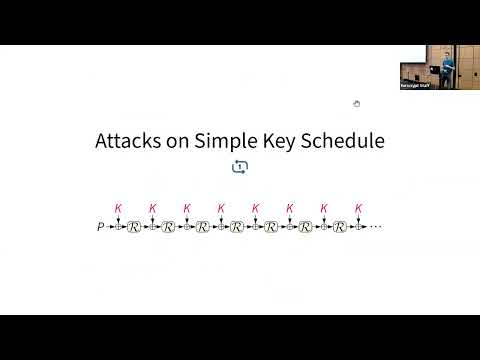CryptoDB
Information-Combining Differential Fault Attacks on DEFAULT
| Authors: |
|
|---|---|
| Download: | |
| Presentation: | Slides |
| Conference: | EUROCRYPT 2022 |
| Abstract: | Differential fault analysis (DFA) is a very powerful attack vector on implementations of symmetric cryptography. Most countermeasures are applied at the implementation level. At ASIACRYPT 2021, Baksi et al. proposed a design strategy that aims to provide inherent cipher level resistance against DFA by using S-boxes with linear structures. They argue that in their instantiation, the block cipher DEFAULT, a DFA adversary can learn at most 64 of the 128 key bits, so the remaining brute-force complexity of 2^64 is impractical. In this paper, we show that a DFA adversary can combine information across rounds to recover the full key, invalidating their security claim. In particular, we observe that such ciphers exhibit large classes of equivalent keys that can be represented efficiently in normalized form using linear equations. We exploit this in combination with the specifics of DEFAULT's strong key schedule to recover the key using less than 100 faulty computation and negligible time complexity. Moreover, we show that even an idealized version of DEFAULT with independent round keys is vulnerable to our information-combining attacks based on normalized keys. |
Video from EUROCRYPT 2022
BibTeX
@inproceedings{eurocrypt-2022-31949,
title={Information-Combining Differential Fault Attacks on DEFAULT},
publisher={Springer-Verlag},
author={Marcel Nageler and Christoph Dobraunig and Maria Eichlseder},
year=2022
}

